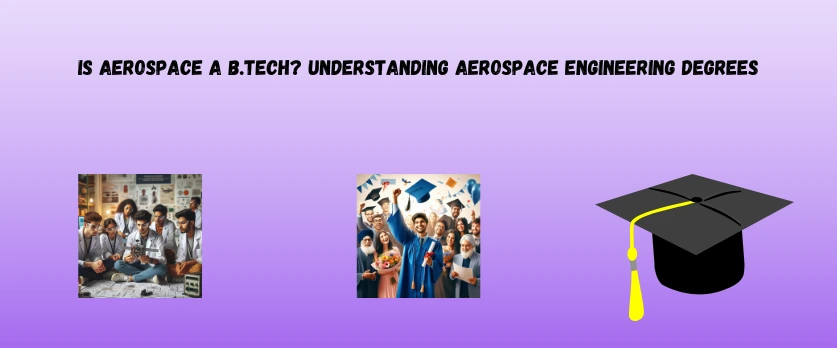Aerospace engineering is indeed offered as a Bachelor of Technology (B.Tech) degree in various educational institutions worldwide. Here’s a detailed breakdown of what a B.Tech in Aerospace Engineering involves:
Educational Background
Undergraduate Level
Aerospace engineering is primarily studied at the undergraduate level, leading to a B.Tech degree. This program typically spans four years, and students are awarded a Bachelor of Technology upon completion.
Curriculum and Subjects
Core Engineering Subjects
The curriculum includes foundational engineering subjects such as mathematics, physics, and core engineering principles that form the basis for aerospace engineering studies.
Aerospace-Specific Courses
Specialized courses delve into aerospace-centric subjects like aerodynamics, aircraft structures, propulsion systems, flight dynamics, avionics, and space sciences.
Laboratory Work
Practical application is emphasized through laboratory work, where students gain hands-on experience with aerospace equipment, conduct experiments, and work on aerospace-related projects.
Core Competencies
Aerodynamics
Understanding the behavior of air around aircraft surfaces and the principles of flight.
Structural Design
Designing and analyzing aerospace structures, considering materials’ strength and durability.
Propulsion Systems
Studying the engines and propulsion systems that drive aircraft and spacecraft.
Avionics
Integrating electronic systems into aerospace vehicles, covering navigation, communication, and flight control systems.
Industrial Exposure
Internships and Projects
Many B.Tech programs incorporate internships, industrial training, and real-world projects to provide students with practical exposure to the aerospace industry.
Industry Collaborations
Collaboration with aerospace companies, guest lectures by industry experts, and visits to aerospace facilities contribute to a comprehensive understanding of the industry.
Career Prospects
Diverse Career Paths
B.Tech graduates in aerospace engineering can pursue careers in aircraft design, spacecraft development, aviation, defense, research, and even space exploration.
Research Opportunities
Some graduates choose to continue their studies at the postgraduate level (M.Tech/Ph.D.) to specialize in specific areas of aerospace engineering and engage in research.
Further Studies
Master’s and Ph.D. Options
After completing a B.Tech, individuals may choose to pursue advanced degrees for deeper specialization or academic research.
Conclusion
In summary, aerospace engineering is indeed offered as a B.Tech program, providing students with a comprehensive education in the principles and applications of aerospace technologies. Graduates of B.Tech in Aerospace Engineering programs are well-equipped to embark on exciting careers in the aerospace industry, contributing to the design, development, and advancement of aircraft and spacecraft technologies.
To become an aerospace engineer you may could join aerospace engineering through AME COMMON ENTRANCE EXAM (AME CEE) this examination you may join Aerospace Engineering approved by AICTE.


